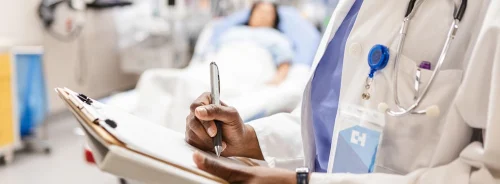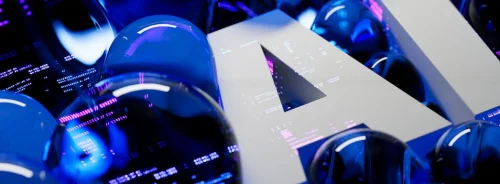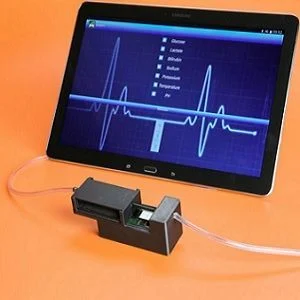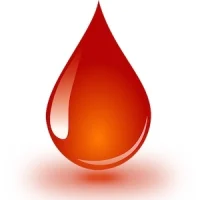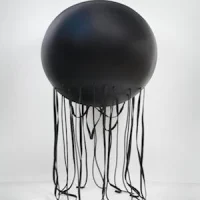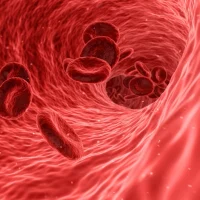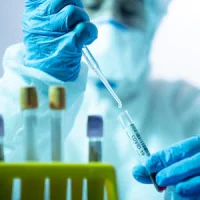Scientists at Ecole Polytechnique Federale de Lausanne (Switzerland) have developed a miniature device that can monitor in real time five vital substances for patients in the intensive care unit. This means medical staff can be alerted about critical blood levels of patients and react more quickly. The device was unveiled at the 2015 BioCAS Conference in Atlanta, Georgia.
Developed by EPFL's Integrated Systems Laboratory (LSI), the prototype is no larger than a pack of chewing gum. But this little black case with two thin tubes sticking out contains some real miniaturised high-tech wonders. Inside this small box are biosensors designed to measure several different substances in the blood, plus an array of electronics to transmit the values in real time to a tablet via Bluetooth, according to Sandro Carrara, PhD, an LSI scientist.
The device can be easily connected to a drainage tube that is already in place, making it much less invasive than the many monitoring devices that it is designed to replace. The new system constantly tracks the blood levels of five substances: metabolites (glucose, lactate and bilirubin) and ions (calcium and potassium), all of which indicate changes in the condition of ICU patients.
"Nowadays, several of these levels are measured periodically," says Dr. Carrara. "But in some cases, any change in level calls for an immediate response, something that is not possible with the existing systems."
With the new system, up to 40 molecules could be monitored in real time. This advance will drastically reduce the number of machines cluttered around patients — an obvious practical advantage for the medical staff, not to mention the psychological boon for loved ones.
The prototype, which was made with a 3D printer, has been successfully tested on rodents. Discussions are now under way for tests to be carried out at the University Hospital of Lausanne (CHUV).
The LSI team reveals that a number of manufacturers have already expressed serious interest in developing this device. "We could hit the market in two to three years," Dr. Carrara says.
This progress towards more precise and effective medicine was achieved under the Nano-Tera initiative, which is financed by the Swiss government.
Source: Ecole Polytechnique Federale de Lausanne
Image credit: Alain Herzog/EPFL 2015
Developed by EPFL's Integrated Systems Laboratory (LSI), the prototype is no larger than a pack of chewing gum. But this little black case with two thin tubes sticking out contains some real miniaturised high-tech wonders. Inside this small box are biosensors designed to measure several different substances in the blood, plus an array of electronics to transmit the values in real time to a tablet via Bluetooth, according to Sandro Carrara, PhD, an LSI scientist.
The device can be easily connected to a drainage tube that is already in place, making it much less invasive than the many monitoring devices that it is designed to replace. The new system constantly tracks the blood levels of five substances: metabolites (glucose, lactate and bilirubin) and ions (calcium and potassium), all of which indicate changes in the condition of ICU patients.
"Nowadays, several of these levels are measured periodically," says Dr. Carrara. "But in some cases, any change in level calls for an immediate response, something that is not possible with the existing systems."
With the new system, up to 40 molecules could be monitored in real time. This advance will drastically reduce the number of machines cluttered around patients — an obvious practical advantage for the medical staff, not to mention the psychological boon for loved ones.
The prototype, which was made with a 3D printer, has been successfully tested on rodents. Discussions are now under way for tests to be carried out at the University Hospital of Lausanne (CHUV).
The LSI team reveals that a number of manufacturers have already expressed serious interest in developing this device. "We could hit the market in two to three years," Dr. Carrara says.
This progress towards more precise and effective medicine was achieved under the Nano-Tera initiative, which is financed by the Swiss government.
Source: Ecole Polytechnique Federale de Lausanne
Image credit: Alain Herzog/EPFL 2015
Latest Articles
healthmanagement, blood, glucose, precision medicine, monitoring device, biosensors
Scientists at Ecole Polytechnique Federale de Lausanne (Switzerland) have developed a miniature device that can monitor in real time five vital substances for patients in the intensive care unit. This means medical staff can be alerted about critical bloo

